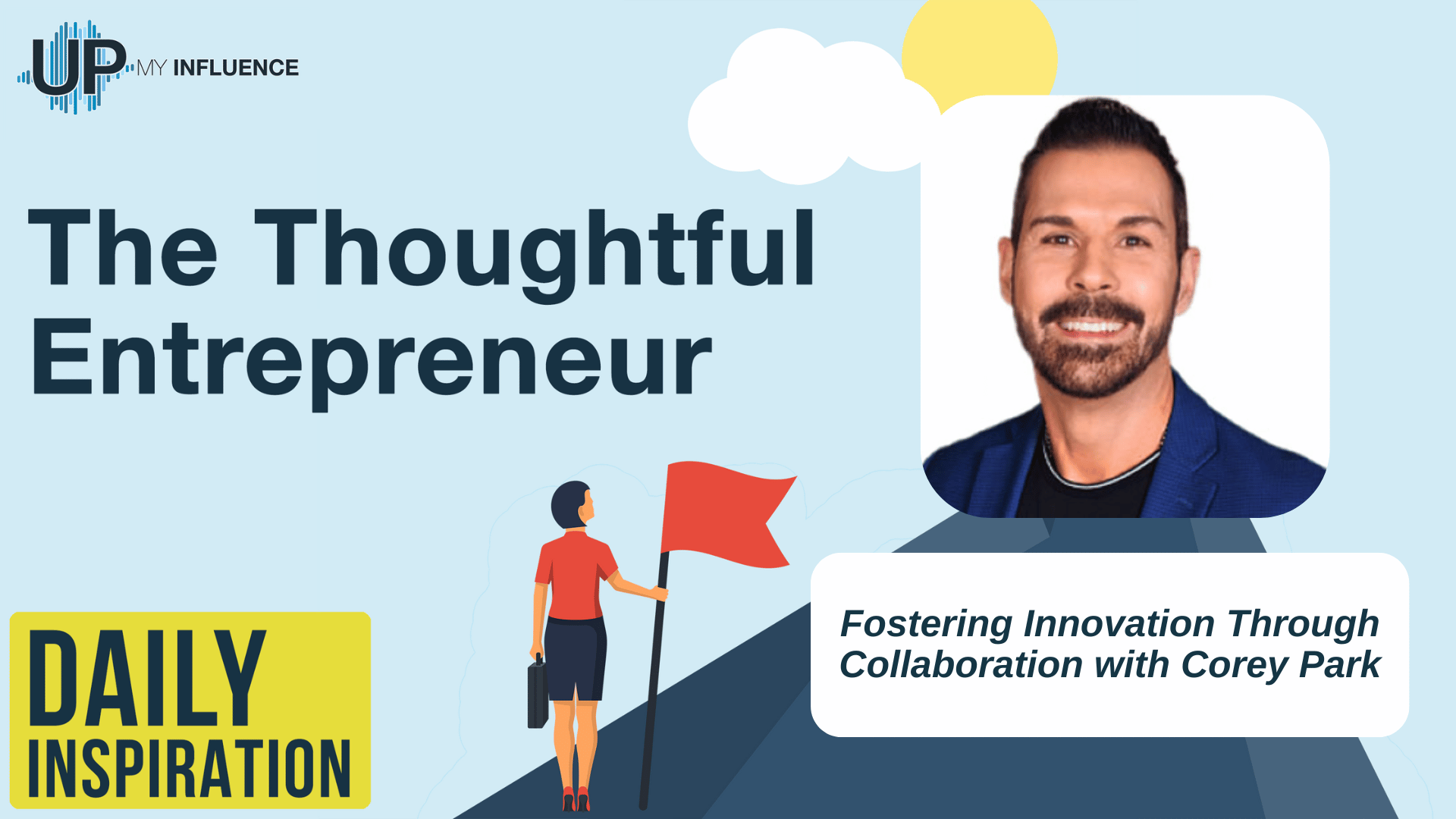THE THOUGHTFUL ENTREPRENEUR PODCAST
In this episode of the Thoughtful Entrepreneur, your host Josh Elledge speaks to the Founder & Chairman of Academic Technology Ventures, Inc., Corey Park.

Corey shared the pivotal moments that led to the creation of this groundbreaking company. ATV is a testament to Corey's unwavering commitment to bridging the gap between academic research and real-world applications. His insights into transforming theoretical knowledge into market-ready solutions were enlightening.
Corey emphasized how ATV nurtures partnerships between academia and industry, creating a symbiotic relationship that accelerates the development of new technologies. He provided examples of successful ventures that have emerged from these collaborations, showcasing the potential for significant societal impact.
As the chairman of ATV, Corey Park has a unique perspective on leadership. He shared his philosophy on guiding a company at the forefront of technological advancement. We discussed the challenges of staying ahead in a rapidly evolving landscape and how leaders can foster a culture of continuous innovation within their organization.
Corey was candid about the obstacles ATV has faced. From securing funding to navigating the complex patenting process, he thoroughly assessed the challenges tech entrepreneurs must overcome. His advice on tackling these issues was practical and motivational, offering a roadmap for aspiring innovators.
Key Points from the Episode:
- The role of Corey Park as the founder and chairman of Academic Technology Ventures
- The impact of technology on academic ventures
- The potential benefits and challenges of academic technology ventures
- The importance of innovation in academic technology
- The role of entrepreneurship in academic technology ventures
- The potential for collaboration between academia and technology ventures
- The future of academic technology ventures
- The perspectives of the unnamed guest on the topic
About Corey Park:
Corey Park is a visionary entrepreneur and business strategist with nearly 30 years of experience. As the Founder and Chairman of his ventures, Corey is known for transforming visions into tangible outcomes through strategic business planning and team development. He is uniquely able to identify opportunities and leverage points within organizations, fostering growth and driving significant business advantages.
A Notre Dame Mendoza School of Business graduate focusing on Leadership & Management, Corey is also a certified hedge fund professional (CHP) specializing in portfolio analytics and risk management.
Throughout his illustrious career, Corey has made substantial contributions as a serial entrepreneur, serving on several boards and being a coveted advisor and mentor in the tech startup and venture capital sectors. His expertise and guidance are highly valued across the business landscape, especially in innovative and technological domains.
About Academic Technology Ventures, Inc.:
Academic Technology Ventures (ATV) is a pioneering firm that bridges the gap between academic and government lab inventions and the marketplace. Their mission is centered on creating a better world by commercializing disruptive technologies. With a keen eye for potential, ATV sifts through thousands of innovations annually, identifying those with the most substantial intellectual property and market impact potential.
The company prides itself on a highly scientific approach to technology selection, ensuring that only the most promising inventions are developed and brought to market. ATV's team consists of highly trained, focused, and experienced leaders in technology commercialization, offering a unique combination of capabilities and resources.
This strategic approach propels inventions from concept to commercial success and contributes significantly to advancing global technological progress and societal benefits.
Tweetable Moments:
13:18 – “I was part of that 85%, stuck and hard to find an original idea. I didn't know how to get into the blue ocean; I was stuck in the red ocean with all the other small business guys.”
Links Mentioned in this Episode:
Want to learn more? Check out Academic Technology Ventures, Inc. website at
https://academictechventures.com/
Check out Academic Technology Ventures, Inc. on LinkedIn at
https://www.linkedin.com/company/build-grow-scale/
Check out Corey Park on LinkedIn at
More from UpMyInfluence:
We are actively booking guests for our The Thoughtful Entrepreneur. Schedule HERE.
Are you a 6-figure consultant? I’ve got high-level intros for you. Learn more here.
What is your #1 Lead Generation BLOCKER? Take my free quiz here.
Want to learn more about all the podcasts managed by UpMyInfluence? Opt in here.

